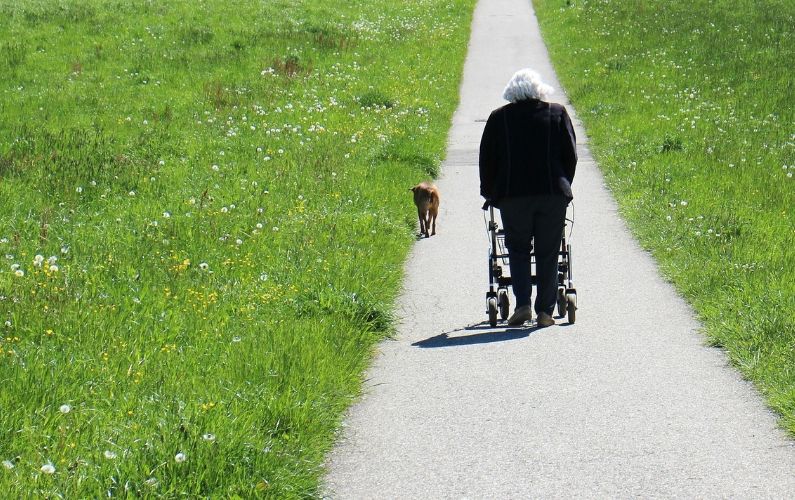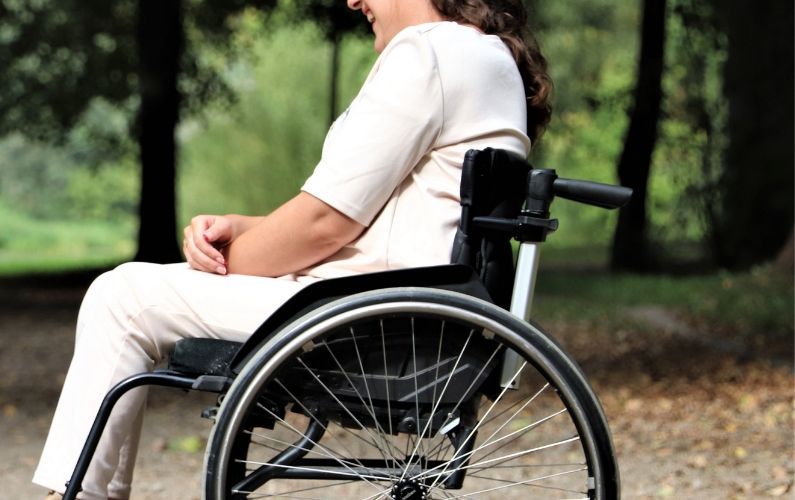7 Signs that Show You Should Be Using a Walker
It's estimated that 7% of Americans aged 65 or older need help with personal care. As the population ages, that number is likely to increase.
Staying independent is important to many people. They may not have family nearby to help and they may not be able to afford assisted living. One of the most important factors in being independent is the ability to get around without help.
A walker can make a big difference. Let's look at some signs that you should consider using a walker.
You Can't Rely on Your Legs to Stand
If you can't rely on one, or both, legs to stand, a walker can provide the extra stability you need. This could be due to bones healing from a break, wounds on your feet or lower legs, arthritis, or surgery such as a hip or knee replacement.
Being unsteady on your feet can cause stress and make you avoid doing certain things for fear of falling. A walker lets your arms provide extra support, letting you do those activities with confidence.
You Get Tired Easily
If you find yourself getting tired easily, a walker can help in a couple of ways. If you don't need to lean on the walker for balance, a four-wheel walker will help support you but also give you a place to sit and rest if you're feeling winded.
This can be helpful if you suffer from respiratory issues like asthma or COPD, a loss of physical conditioning after a long illness, or age-related loss of energy.
There are several types of walkers, and not all have a seat so this will depend on what other conditions the walker is helping you manage. A physical therapist can help you choose the right type for your needs.
You Suffer from Poor Balance
Your legs may be strong enough to support you but if you suffer from dizziness, you may still be at risk of a fall. A walker can provide the extra support you need to help maintain your balance while standing and walking.
Many conditions can cause balance problems including:
- Neurological conditions like a stroke or multiple sclerosis
- Low blood pressure
- Dizziness
If you're not able to compensate for balance changes quickly enough, you could suffer a fall. A walker gives you something to hang onto so your legs aren't doing all the work.
You Want to Stay Independent
Most people want to stay independent as they age. They don't want to have to rely on friends or family to take care of them, both because it feels like an imposition and because it's hard to admit you can't do it all yourself.
If you're living alone, a walker can help you be more confident when getting around but it can also be a big help if you're the primary caregiver for someone else. Often one spouse is caring for the other and a walker will let them continue to do so without minimal outside help.
Depending on the condition that prompted you to consider a walker, you may still be able to drive and take part in other activities outside your home. A walker can give you the confidence you need to keep doing those things. Taking part in more activities and getting plenty of social contact can help your overall health so there can be a knock-on effect that goes beyond the added mobility a walker provides.
You've Fallen in the Past
If you've fallen in the past, it may be a sign that you should consider a walker. Particularly if you've fallen more than once. Even if you haven't broken any bones or done any other serious damage in the fall, it can have a psychological effect.
This can lead you to avoid certain activities for fear of falling again, adding stress to your life and causing you to miss important things.
And if you have broken a bone in a previous fall, it's quite likely that the joint will be weaker after it heals. This can make balance and support problems even worse but that bone is more likely to be injured if you fall again. It's not uncommon to see people back in the hospital for the same injury not long after they healed from the previous one. A walker can help you avoid these "revolving door" visits to the doctor or hospital.
You Avoid Chores and Other Activities
You may not have fallen in the past but if you feel unsteady on your feet, it can lead to avoiding activities such as cooking, household chores, and cleaning. If you find yourself procrastinating on these things until you can't ignore them or, worse, ignoring them anyway, it could be a lack of confidence in getting yourself around.
A walker can give your confidence a boost and some types, like a four-wheel model, have a seat that you can use as a sort of workspace. You can move dishes, food, laundry, or any number of other things around the house without having to carry it.
A Cane Doesn't Provide Enough Support
Many people avoid walkers because they feel like they make them look "old," preferring to get around with a cane or walking stick instead. If it provides enough support, there's nothing wrong with that choice but you may find you get to a point where a cane still doesn't feel like it's enough to keep you steady.
A cane works like a third leg in some ways, giving you a single extra point of support. A walker will provide three or four extra points of support, depending on the style, so it will do a lot more than a cane can to help steady you on your feet.
Where to Get a Walker
If you only have a short-term need for a walker, you may be able to borrow one from someone you know or an organization like the Red Cross. They lend medical equipment for short periods of time to help people transition back home after they leave the hospital.
If you're going to need a walker for a longer-term, your best option is to buy one. Renting is less money up-front but over time you'll spend a lot more.
Halo Healthcare carries a large selection of walkers and other walking aids to meet your particular needs. Get in touch with us today and we'll help you make the right choice whether it's for you or a loved one.










